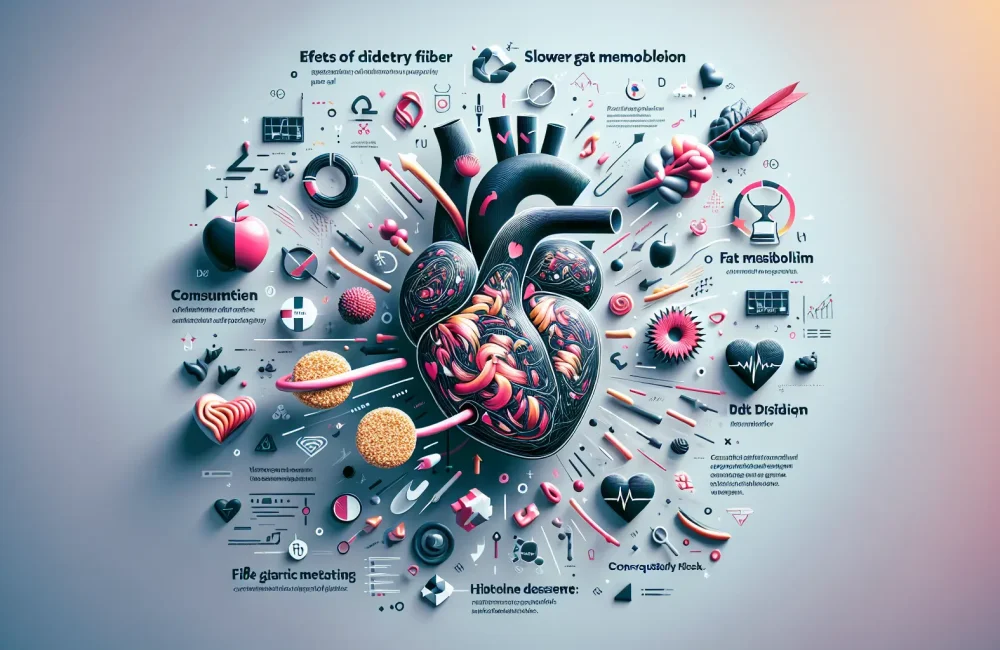By CAFMI AI From The Journal of Nutrition
Fiber Adaptation Alters Post-Meal Lipid Levels
This study examined how dietary fiber affects the body’s lipid response after a high-fat meal, using a rat model. Rats were first adapted to diets rich in dietary fiber before receiving a high-fat meal. Researchers then tracked changes in blood lipid levels, particularly triglycerides and cholesterol, at various intervals after eating. The key finding was that rats adapted to dietary fiber showed a notably different lipid response than those on a normal diet, with a reduced and delayed post-meal spike in triglycerides. This suggests that fiber slows down or modifies how fats are absorbed and processed after eating.
Clinical Implications for Cardiovascular Health
The attenuation of the postprandial lipemic response seen in fiber-adapted rats may partly explain why dietary fiber is associated with cardiovascular benefits. Elevated post-meal triglyceride levels are known risk factors for cardiovascular disease in humans. By reducing and delaying this lipid surge, fiber could help mitigate these risks. Proposed mechanisms for this effect include slower gastric emptying, changes in bile acid metabolism, and alterations in intestinal fat absorption, though these require further investigation. For clinicians, these findings highlight the potential value of dietary fiber not just for general nutrition, but specifically as a modulator of lipid metabolism after meals, which could influence cardiovascular risk management.
Considerations for Primary Care Practice
Primary care physicians should consider the role of dietary fiber in managing patients’ lipid profiles and cardiovascular risk, especially for those with or at risk of dyslipidemia and heart disease. While this study was in rats, the clinical implications support current dietary guidelines recommending increased fiber intake. Encouraging patients to consume fiber-rich foods may help reduce the harmful postprandial lipid spikes that contribute to atherosclerosis development. Further research in humans will strengthen these recommendations, but the existing evidence provides a practical and non-pharmacologic approach to lipid management that can be easily integrated into primary care advice and patient education.
Read The Original Publication Here






